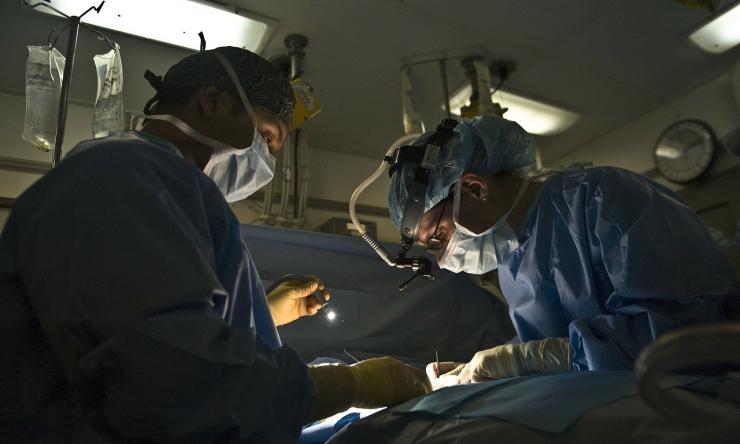A 20-second test to predict risk of major adverse events after surgery
Frailty is a good indicator for which surgery patients may develop adverse outcomes following their procedure, but current frailty screenings are underutilized. Researchers at Baylor College of Medicine and University of Southern California found that a 20-second repetitive elbow flexion-extension test is a feasible tool in evaluating the risk of major adverse outcomes following vascular surgery procedures. Their research was recently published in JAMA Network Open.
“Frailty is a good indicator of who may develop more complicated outcomes following surgery,” said Dr. Bijan Najafi, professor in the Michael E. DeBakey Department of Surgery at Baylor, director of clinical research in the division of vascular surgery and endovascular surgery and first author of the study. “Few people are utilizing current frailty screenings, which often involve analyzing a patient’s gait, because it’s not necessarily a good indicator of frailty. For example, people with an amputation, an ulcer, or foot pain at rest may not walk well, but it doesn’t necessarily mean they are frail. However, these are the patients who may get the most benefit from vascular surgery with low risk of adverse events.”
The 20-second test measures frailty using a sensor worn on the wrist that quantifies weakness, slowness, rigidity and exhaustion. Using a sophisticated algorithm, researchers developed a frailty index ranging from zero to one, with higher values indicating a progressively greater severity of physical frailty.
To determine the feasibility of using this test to predict risk of adverse events, researchers tested 152 vascular surgery patients one week prior to surgery and followed them one month postsurgery to document any adverse events. The patients’ surgeons were not told the predicted risk of adverse events so that it did not influence their procedures, but did receive the results following the study.
Researchers found that baseline demographic information and clinical information were not good predictors of adverse events, but those who were identified as frail using the sensor-based 20-second test were 2.1 times more likely to have an adverse event following surgery. These outcomes were independent of the type of surgery, location of incision or surgery site (Baylor College of Medicine or University of Southern California).
According to Najafi, a biomedical engineer and director of the Interdisciplinary Consortium on Advanced Motion Performance (iCAMP) at Baylor, this type of collaboration between surgeons and engineers can help better inform surgeons and patients and their families about the risk of adverse events so that they can take measures to reduce the risk of adverse events ahead of surgery.
“As a surgeon who deals with limb salvage on a daily basis, having such a simple tool help predict outcomes is of essence. I would envision that this could help put together prehabilitation plans for elective high-risk patients,” said Dr. Miguel Montero-Baker, co-author and associate professor of surgery at Baylor.
Future research will be done to determine whether the 20-second test can be used to predict adverse events in other types of procedures outside of vascular surgery.
Others who took part in the research include Dr. Alejandro Zulbaran-Rojas, Dr. Catherine Park, Dr. Hung Nguyen, Dr. Hector Elizondo-Adamchik, Dr. Jayer Chung and Dr. Joseph Mills with Baylor and Dr. Narek Veranyan, Quinn Kaleikaumaka Nakahara, Dr. David G. Armstrong and Dr. Vincent Rowe with the University of Southern California.
Partial support was provided by the National Institute on Aging (award No., 3SB1AG032748-06S1; prime awardee, Biosensics LLC, with sub-award to Baylor College of Medicine), the National Cancer Institute (award No., 1R21CA190933-01A1), and Baylor College of Medicine, Michael E. DeBakey Department of Surgery.










